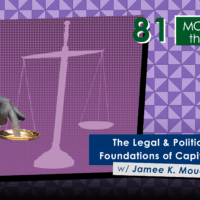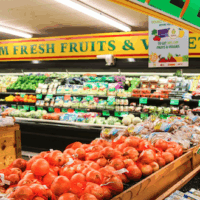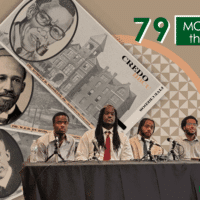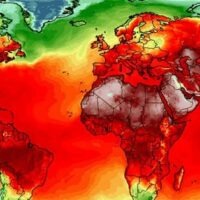-
Capitalism’s rolling back of welfare spending
Donald Trump’s “big beautiful bill” which got passed by both houses in the U.S. and has now become law, is a massive assault on welfare spending.
-
Texas flood disaster: A crime of capitalism
The death toll from flash flooding in Texas continues to rise, now above 100, with many still missing and presumed drowned.
-
Vilifying the Nehru-Mahalanobis strategy
It is very important to distinguish between the Left criticism and the neoliberal criticism of the dirigiste strategy.
-
Dollar v Euro
This week, the world’s major central bankers have gathered in the sweltering heat of Sintra, Portugal (although I am sure the the aircon is good in their swanky hotel in the hills).
-
Legal & Political Foundations of Capitalism w/ Jamee K. Moudud
Heterodox economist Jamee K. Moudud returns to Money on the Left to discuss his new book, Legal and Political Foundations of Capitalism: The End of Laissez-Faire? (Routledge, 2025). The phrase “institutions matter” is a common refrain among economists, including many who have proposed progressive alternatives to free market fundamentalism. For Moudud, however, this proposition doesn’t go far enough, leaving a host of problematic assumptions unquestioned. To remedy this, Moudud draws on the Original Institutional Economics and American Legal Realist traditions to propose a robust theory of legal institutionalism or institutional political economy.
-
How to New York Times-Proof Mamdani’s Playbook: Turning Coalition Specifics into Fiscal Possibilities
In a recent video recapping his primary victory in Queens, Zohran Mamdani did something almost radical for today’s political landscape: he cut through the usual Beltway euphemisms and mapped out the varied, living elements of the coalition that won. Most postmortems stay tangled in polite code. We get anxious talk of “electability,” “swing voters,” whether […]
-
The New Silk Road and the threat to American domination
The little-reported opening of a major rail link between China and Iran may upend the strategic calculations behind U.S. imperial policy in the Middle East, argues Kevin Crane.
-
No, You Aren’t Hallucinating, the Corporate Plan for AI Is Dangerous
Big tech is working hard to sell us on artificial intelligence, in particular what is called “artificial general intelligence.” At conferences and in interviews corporate leaders describe a not-too-distant future when AI systems will be able to do everything for everyone, producing a world of plenty for all. But they warn, that future depends on […]
-
The Global North lives off intellectual rents: The Twenty-Sixth Newsletter (2025)
Despite rapid technological innovations, Global South countries remain trapped in Global North-dominated intellectual property regimes designed to extract endless rents through patents and licensing fees– stripping them of wealth and stunting their development.
-
Is it time for a public option for groceries?
In communities where access to fresh food is scarce, public grocery stores can provide crucial resources at lower prices.
-
Conservation Innovations: How sustained resistance is saving one of the Earth’s most critical rainforests from corporate greed
As profit-driven exploitation imperils Indonesia’s Leuser Ecosystem, some unique conservation strategies are working to save it.
-
‘Housing unaffordability is the primary cause of homelessness’
CounterSpin interview with Farrah Hassen on criminalizing homelessness
-
The Black University and Community Currencies, PT. 2
In this episode, we share Part 2 of our coverage of The Black University & Community Currencies workshop. Held April 25, 2025 on the campus of Morehouse College, the workshop fostered dialogue between students, faculty, and activists about the radical possibilities of public money for higher education, broadly, and for communities at and around Morehouse, specifically. The occasion for the workshop was the conclusion of a semester in which students enrolled in Professor Andrew Douglas’s advanced political theory course at Morehouse implemented a classroom currency called the CREDO for use by Morehouse students.
-
Pentagon split over ‘Israel’ military aid exposes foreign policy rift
A Pentagon rift over military aid to “Israel” reveals tensions between advocates of Middle East engagement and those prioritizing Asia, shaping Trump’s foreign policy.
-
The recent upsurge in military expenditure
THERE is an upsurge in military expenditure all over the world which is spearheaded by the upsurge in Europe.
-
Iran now first line of defense of BRICS and the Global South
This is as serious as it gets. Let’s survey the chessboard—from micro to macro.
-
The dollars dilemma: Echoes of a Plaza past and an uncertain future
The dollar’s decline is a sign of deeper volatility in the global system.
-
The Migrant Genocide: Toward a Third World Analysis of European Class Struggle
Over 10,000 people died in transit to Spain in 2024 alone.[1] On June 2022, the border fence of Melilla, one of two Spanish enclaves in Morocco, was witness to a massacre that killed or disappeared over a hundred African migrants.[2] A recent BBC investigation revealed that Greek border guards systematically repeal immigrants already on Greek […]
-
A Potentially Politically Hot Summer in Puerto Rico
For today I have been asked to speak a bit about my country, Puerto Rico, and the socioeconomic crisis that is currently developing there.1 Given the time constraints, I want to provide you with a brief overview of what is being experienced there by the victims of the crisis. I want to also speak a […]
-
1.5 is dead: How hot will the Earth get?
It may be ‘technically possible,’ to keep global heating below 1.5 degrees, but it isn’t going to happen..

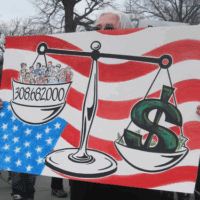
![A crew of firefighters from Ciudad Acuna, Mexico, left, aid in search and rescue efforts near the Guadalupe River after a flash flood swept through the area, Monday, July 7, 2025, in Ingram, Texas. [AP Photo/Eli Hartman]](https://mronline.org/wp-content/uploads/2025/07/flood-200x200.jpg)


